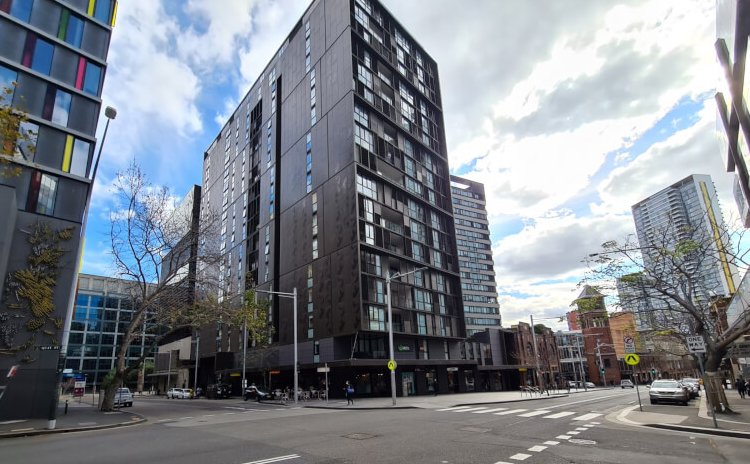Relief at last for leaseholders with unsafe homes, as protections from safety remediation costs come into force last week.
The Building Safety Act comes into force today, protecting qualifying leaseholders living in buildings above 11 metres tall or with at least five storeys, from extortionate building safety costs.
Thousands of leaseholders have found themselves with crippling remediation bills and unable to put their properties on the market, as an unintended consequence of post-Grenfell safety regulations.
From 1st July, the costs will be borne by the freeholder and it will be illegal for them to pass on historical building safety costs.
However where costs are not recoverable from freeholders, landlords and building owners will be forced to foot the bill. For leaseholders to qualify for full protection, they must be living in their own homes, or can own up to three UK properties in total; this offers some relief for smaller landlords.
They will also have robust and far-reaching protections from the costs associated with non-cladding defects, including interim measures like waking watches.
It will be illegal for freeholders to pass on the cost of historical building repair works or the removal of cladding to any of their leaseholders, including non-qualifying leaseholders, if they are or are linked to the building’s developer.
"Hundreds of thousands of innocent leaseholders now have the legal protection they rightly deserve…”
Where a developer cannot be held responsible and the building owner is not required to meet the costs in full, leaseholders with non-cladding related issues will also be protected by a cap on how much they can pay for these costs.
The cap will only apply to non-cladding related work for those whose property is valued at more than £325,000 (London) and £175,000 outside London (owners of properties below this ceiling will pay nothing).
Buyers of new build homes will be able to hold their developer responsible for safety and quality issues under a new scheme from the New Homes Ombudsman.
Commenting on the new legislation, the Secretary of State for housing, Michael Gove said, “This marks a major turning point for building safety in this country, as we introduce a tough new regime to make homes safe and help rid the sector of bad practice once and for all.
“Hundreds of thousands of innocent leaseholders now have the legal protection they rightly deserve, freeing them from a financial burden they should never have faced.
“I’m pleased that most of the largest developers have agreed to play their part in solving this.
“But there is more to do – we are focusing intensively on work with lenders to unlock the mortgage market and empower leaseholders to take their next step on the property ladder, and we will remain vigilant if anyone fails to act on the pledges they have made.”
Ground rent on new residential leases ends
The Government’s ban on charging ground rent on new leases in England and Wales comes into force last week.
The Government is taking action to rid future homeowners of annual costs – known as ground rent. Sometimes costing hundreds of pounds a year, these charges provide no clear service in return and can be set to escalate regularly, with a significant financial burden for leaseholders. Landlords will be banned from charging ground rent to future leaseholders.
In preparation, many landlords have already reduced ground rent to zero for homebuyers starting a new lease with them.
Leasehold Minister, Lord Stephen Greenhalgh said, “This is an important milestone in our work to fix the leasehold system and to level up home ownership. Abolishing these unreasonable costs will make the dream of home ownership a more affordable reality for the next generation of home buyers.
“I welcome the move from many landlords who have already set ground rent on their new leases to zero and I urge others to follow suit ahead of this becoming law.”
Future measures, announced last year, include a new right for leaseholders to extend their leases to 990 years at zero ground rent and an online calculator to help leaseholders find out how much it would cost to buy their freehold or extend their lease.
In addition, thousands of existing leaseholders have also already seen a reduction in their inflated ground rent costs. In a government crackdown, the Competition Market Authority (CMA) secured commitments with major homebuilders to stop doubling ground charges every year for leaseholders.
Those who own properties with Aviva, Persimmon, Countryside Properties, Taylor Wimpey and others will see their ground rent returned to the rate it was when they first bought their home. The CMA’s investigation is continuing into Barratt Developments, Brigante Properties and the investment group Abacus Land and Adriatic Land.
The ban on landlords charging ground rent on new residential leases, announced last week, will also apply to retirement homes. This will come into force no earlier than 1 April 2023.
Shilpa Mathuradas, head of property litigation at Osbornes Law, said, “While any reform of the antiquated leasehold system is to be welcomed this new legislation could well create a two-tier system in which older leaseholds become more difficult to sell.
“As the new law only applies to new leases, it leaves those already paying onerous ground rents or doubling rent clauses to suffer. It is crucial that the government sets out a timetable for the second stage of leasehold reform, including abolishing ‘marriage value’ and allowing homeowners to extend their leases with zero ground rent for 990 years, so that all leaseholders are freed from a system that is no longer fit for purpose.”

